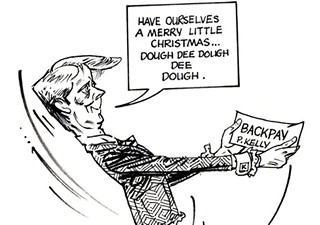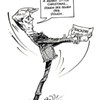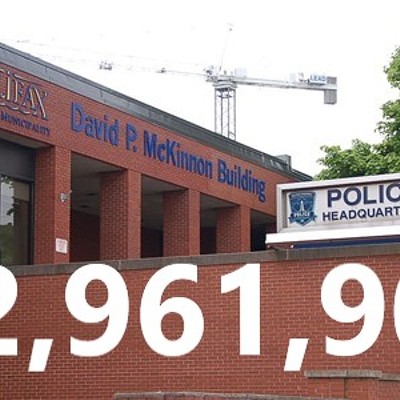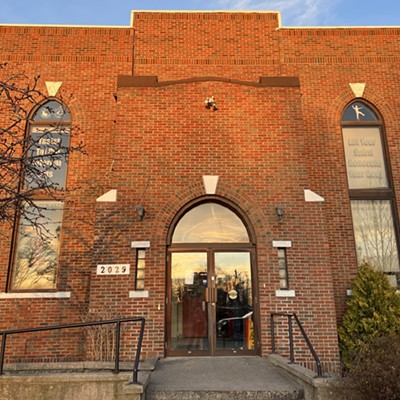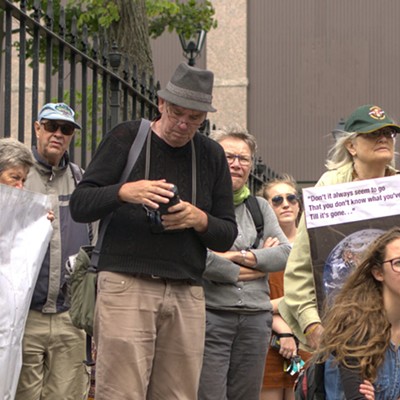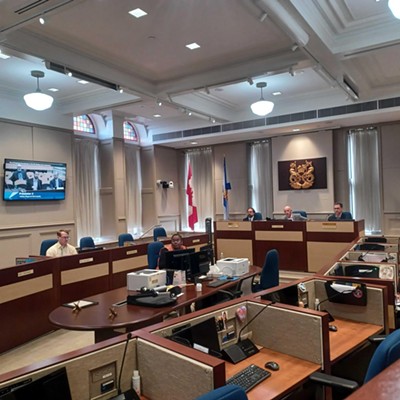Last week, city staff announced that the pay rates for Halifax councillors had been improperly calculated, and so every councillor serving since 2005 would receive a one-time payment making up for lost pay. The payments totalled $246,096.16; some councillors received as much as $8,000, but most considerably less.
Councillors used to set their own pay rates, which rightly didn't sit well with the citizenry, so in 2004 a citizens' commission was established to recommend a non-politicized method for setting council pay. That commission consisted of three people: Jon Stone, a former journalist who went on to a 20-year career as a federal employee; Peter Ineson, a payroll specialist hired by the Treasury Board of Canada to establish pay rates and benefits for its 20,000 employees; and Blair Mitchell, a lawyer with expertise in employment law.
The commission found that in 2004 Halifax council pay was too low, and should be brought up to a level based on the amount paid to councillors working in eight Canadian cities---Winnipeg, Vancouver, Hamilton, Surrey, Laval, London, Brampton and, curiously, Halifax itself. The cities were weighted for population, and the weighted average council pay served as a baseline; by 2009, said the commission, Halifax council pay should be brought up to the median difference between the weighted average and the highest rate paid in the eight cities.
Confused? So was the city's payroll office. I'll spare you a detailed discussion of the numbers, but I'm satisfied that the mistake was honest and forgivable, and that last week's back payments entirely meet the equation established by the commission.
Councillors now get paid $71,206. Mayor Peter Kelly receives $139,330, and deputy mayor Brad Johns pulls in $78,327.
I have problems with some of the commission's logic. Unlike civil servants, who have the option of shopping their skills around to other municipalities, I don't think councillors' pay should be based on other cities---councillors can't decide one day they'd get a better deal if they represented Winnipeg instead. Also, I think the inclusion of Halifax in the list of cities serves as an unnecessary inflator---every time Halifax councillors' pay goes up, the overall average goes up, which means that Halifax councillors' pay has to go up again.
But I don't disagree that Halifax councillors should be well-paid. All public employees should be well-paid. Government pay reflects our collective values as a community, and government pay should set a high standard for the private sector.
Were I on the citizens' commission, I'd base council pay not on other cities, but on Halifax itself---councillors would get paid based on the pay council sets for municipal employees.
Which raises the question: How well is council paying city workers?
I called Nancy Elliot to find out. Elliot is the negotiator for the Nova Scotia Union of Public Employees, which represents all the city's "inside" workers, ranging from clerks to planners. The union has been without a contract since November 2008, says Elliot, and negotiations aren't going well---the union is recommending that workers reject the city's latest offer, which was approved by council in a secret meeting.
The city's offer sets a rate just four cents above minimum wage for some city workers, and rolls back an earlier offer for three-percent raises to two percent in coming years. The change "appears to be vindictive on the part of HRM," notes the union's website. Worse still, as Elliot sees it, are two clauses that mandate polygraph tests for some prospective employees and allows management to record phone calls.
The concern on the polygraph issue is that the bureaucracy is often reorganized to bring more offices under the purview of the police department, which gives management the excuse to test ever more employees. On the phone recording front, the provincial Supreme Court has ruled in the union's favour, finding that the recordings are a violation of privacy rights; council has appealed that ruling, and has included recordings in its contract offer. Certainly, councillors are not given polygraph tests, nor are their phone calls recorded.
What we're left with is a city council that gets decent pay turning around to offer its own employees a crappy deal.

